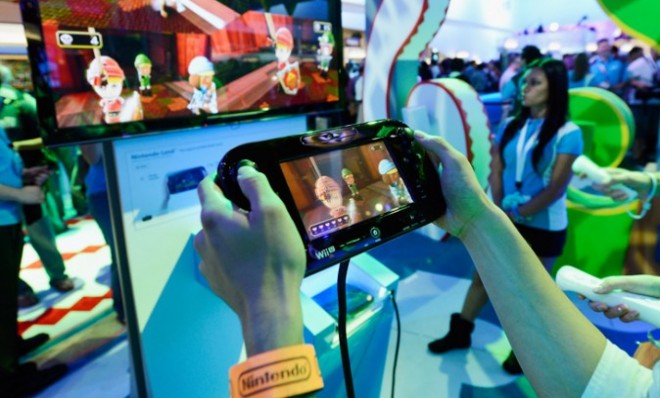Is it game over for Nintendo?
The Wii U is a bust (so far). And the legendary gaming company's future is looking increasingly bleak

A free daily email with the biggest news stories of the day – and the best features from TheWeek.com
You are now subscribed
Your newsletter sign-up was successful
Nintendo had no choice but to go all in with the Wii U, the newest in a long line of ostensibly childhood-defining game consoles. Unfortunately, the company also inherited the weighty expectations of the original Wii — which, if you'll remember, became a surprise hit when it debuted in 2006, or just two short years after the world was first introduced to a little-known Senate candidate named Barack Obama. But ever since the Wii U hit store shelves in November, sales have been disappointing. Now the company is dramatically lowering its forecasts for the future.
Initial sales figures indicate that Nintendo has so far sold just 3.06 million Wii U game consoles, and anticipates moving just 4 million Wii U units through March — far below previous estimates of 5.5 million, predictions that weren't even that optimistic to begin with.
Initial reviews of the Wii U were mixed. Yes, it's fun. But the console failed to offer a compelling reason for consumers to free up dusty shelf space alongside their Xbox 360s or PlayStation 3s. Some critics say the console is confused, and Nintendo didn't know if it was targeting mature gamers fixated on first-person-shooter games like Call of Duty and Borderlands, or more casual fans like the original Wii did with its motion-sensing nunchuck. Further complicating matters is a nimble new mobile industry, dominated by noncommittal, take-anywhere games like Temple Run and Angry Birds.
The Week
Escape your echo chamber. Get the facts behind the news, plus analysis from multiple perspectives.

Sign up for The Week's Free Newsletters
From our morning news briefing to a weekly Good News Newsletter, get the best of The Week delivered directly to your inbox.
From our morning news briefing to a weekly Good News Newsletter, get the best of The Week delivered directly to your inbox.
"Nintendo needs a change in strategy," Michael Pachter, a gaming research analyst for Wedbush Securities, tells The New York Times. Even though Nintendo is an instantly recognizable brand the world over, the company still doesn't license its gaming titles for other platforms (ever see Mario on an iPhone?). To make matters worse, on Thursday, Nintendo president Satoru Iwata said that the company has no intention of lowering the price of its $300 flagship gaming system anytime soon. "We were already offering it at a good price," he said.
That means Nintendo, unless it releases a best-selling breakout title soon (Zelda, perhaps? Super Smash Bros. Brawl?), will continue on its path toward an increasingly dark future. The company already had its worst year ever in 2011. Dramatic restructuring seems imminent.
Consoles — compared with phones, tablets, laptops, and many other gadgets — have a much slower product cycle. Manufacturers only press "reset" every couple of years so that game-makers aren't constantly readjusting to new hardware.
For quickly aging dinosaurs like Nintendo, that means more plodding along. More disappointing forecasts. More reluctant critics. More lost opportunities to earn the trust of lifelong fans. More, more, more. (Or for Nintendo, less, less, less?)
A free daily email with the biggest news stories of the day – and the best features from TheWeek.com
"People have to try it to see it is fun," Iwata said of the Wii U. Undoubtedly, it is.
But unfortunately for Nintendo, "fun" just isn't good enough anymore.
-
 Quentin Deranque: a student’s death energizes the French far right
Quentin Deranque: a student’s death energizes the French far rightIN THE SPOTLIGHT Reactions to the violent killing of an ultra-conservative activist offer a glimpse at the culture wars roiling France ahead of next year’s elections.
-
 Secured vs. unsecured loans: how do they differ and which is better?
Secured vs. unsecured loans: how do they differ and which is better?the explainer They are distinguished by the level of risk and the inclusion of collateral
-
 ‘States that set ambitious climate targets are already feeling the tension’
‘States that set ambitious climate targets are already feeling the tension’Instant Opinion Opinion, comment and editorials of the day